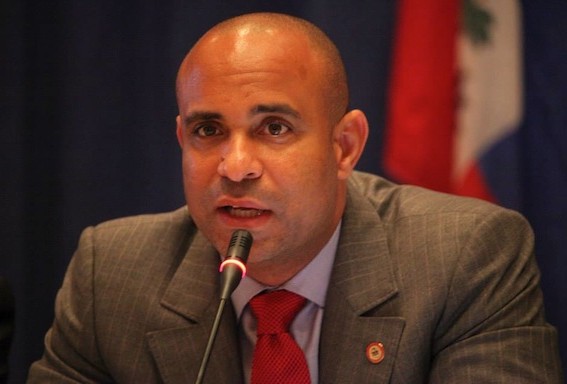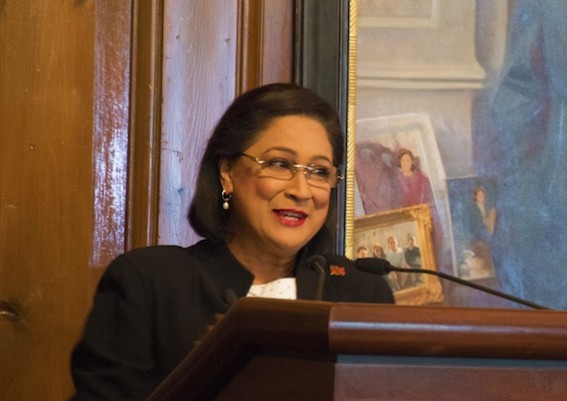Me to o
Although I really want to learn Haitian Creole. No free apps for for that
I got Haitian friends so I can learn from them. shyt is smooth as hell to listen to tho.
Me to o
Although I really want to learn Haitian Creole. No free apps for for that
Adriana Bombom wants to be the “Brazilian Oprah Winfrey” but is this possible in Brazil’s Eurocentric media?

Glória Maria, Oprah Winfrey and Adriana Bombom
Note from BW of Brazil: What woman wouldn’t want to trade places with the American media mogul Oprah Winfrey? The presence of a black woman in such high media profile is an inspiration for millions of women around the world, particularly black women. Recently, dancer/TV reporter Adriana Bombom made the announcement that she too wants to hold a similar place as the queen of American talk shows. But, in reality, there has already been one woman who has come perhaps closest to the coveted position of Brazil’s top black woman news/TV host.

Dancer/TV reporter Adriana Bombom
Adriana Bombom: “I want to be the Brazilian Oprah Winfrey”
Courtesy of Extra
Once a counselor, always a counselor. And all it took was a meeting with Marlene Mattos, who’s been a friend since age 19, when it was revealed at the now defunct program Planeta Xuxa, so that Adriana Bombom would quickly rethink her life. In a brief conversation with the director, the mulata decided to go back to school and go to college.

Friends with Adriana since she was 19, Marlene Mattos encouraged the TV personality to go back to school
“Whoever is not an heir has to study. We never stop being the next one and therefore I decided to encourage her in what I think is important for her life and career,” said Marlene to the column “Retratos da vida” (portraits of life), in the newspaper Extra.
Bombom, 40, attended classes of Communication and Fashion, and opted for the first. According to the newspaper, she chose Journalism course to be the area in which she would work, as she is already a reporter on the Rede TV! Program TV Fama.
“I want to have my own program and be the ‘Brazilian Oprah Winfrey’, said Bombom, citing the famous American host.

Adriana Bombom with her daughters Olívia and Thalita from her marriage with singer Dudu Nobre
Claiming to be very grateful to Marlene, Bombom said she would like to work with her on a project.
“Imagine! It would be a great joy. Marlene has been following my work and still makes comments and warns me about what I can improve.”
Note from BW of Brazil: As BW of Brazil suggested a few years ago, former Globo TV host Glória Maria is perhaps the most successful of Afro-Brazilian women journalists and although she never reached the heights of success and television dominance of Oprah, she is the closest thing that Brazil has ever seen.

“Glória Maria our Oprah Winfrey” – Many Brazilians already see former host as the “Brazilian Oprah Winfrey”
As many Brazilians also see her in this way, the famous host has already addressed comparisons with the American superstar on a number of occasions.

Photo: “Oprah Winfrey is a woman that I admire a lot. She’s not an inspiration, because when I started being a journalist Oprah didn’t exist. I admire her for her life trajectory: born poor, suffered abuses and managed to get where she is, even being black and not being beautiful. She’s a woman that deserves all the admiration and respect of the world.”
12/28/2009
AE – Is it true that you want to be the host Oprah Winfrey?
Glória Maria – When people ask me if I think I’m the Brazilian Oprah, I say that I think Oprah’s the American Glória Maria. I admire her too, and I wish to have a little bit of power and money she has. But I don’t feel I’m Oprah because she’s leaving the air. I don’t want to remain behind the camera. If I had this path, I say bye bye.
3/10/2009
Do you have the desire to do a talk show, a sort of Brazilian Oprah Winfrey?
Glória – Everyone says I’m the Brazilian Oprah, but I think that she is the American Glória Maria. The only difference between us is that she gets a truckload of money and I don’t. Today, I just want to know how to take care of my girls … [the host adopted two girls in July] But who knows, right? If it was something that seduced me, I would agree. You have to have a challenge, something new. Doing a talk show is not new; only if I get to do it in a new way. I’m proud to have been a pioneer in all the things of journalism. I’ve always been a woman who paved the way. I was the first and only black host who did ten years on Fantástico. I was also the one who requested to leave. Therefore, if it is to do something that everyone does, I’m out!
Note from BW of Brazil: Congratulations for a long career of success to Glória Maria and good luck to Adriana Bombom in her endeavors. But the comparison and success of someone like Oprah Winfrey speaks volumes of how racial politics is seen in the seen in the two country. For many years Brazilians have pointed to the United States in a sort of “knee jerk” reaction type of way when the question of racism comes up. In the face of consistent cases of racism that occur in Brazil everyday, people still prefer to deflect the fact by pointing the finger at the racist history of the United States.
The fact is, the ascension of an Oprah Winfrey to the top position of media mogul and Barack Obama to the presidency of the United States and the non-existence of equals in Brazil speaks volumes about racial realities in the two countries. To be quite honest, I am not one to view the successes of individuals as absolute proof of the state of race relations. Winfrey and Obama are two people who were chosen by “the system” for specific reasons and, in fact, serve as means of the American media to attempt to diminish continuous racial problems in that country.
On the flip side, in Brazil, the ascension of Afro-Brazilians into such positions in an extremely Eurocentric Brazilian media seems almost impossible. Many studies and reports over the years have made comparisons on race and media in both countries and reveal that African-Americans, even being under-represented, are visible in the American media in ways that Brazil’s media would apparently never accept. Many of the black images that one sees in Brazil’s media today are imported programs from the United States broadcast in Brazil with either subtitles or overdubbed in Portuguese. Today, Brazil’s media has already chosen two white women, Ana Maria Braga and now, Fátima Bernardes, as the chosen ones to ascend to the position of “Brazilian Oprah Winfrey”. Of course, it would be great to see more Afro-Brazilian women in positive positions of highlight and power in Brazil, but as the recent controversy over the program Sexo e as negas shows, the Brazilian media continues to prefer to keep black women either in the bedroom or in the kitchen.
Note
1. For more on this report see “Racial and Ethnic Stereotypes in Brazilian Advertising” by Carmen Sílvia Moraes Rial in Antropologia em Primeira Mão. Florianópolis, PPGAS/UFSC, v. 49., available here.
Source: The Pop News, Bem Paraná, Extra, Black Women of Brazil












Honestly I think we should just forget about them altogether. I've met too many of them who get insulted when you mention their African ancestry or call them black.
We're all part of the diaspora, god forbid people want to link up and build or learn about people who face the same struggles and are the descendants of the same ancestors.
I mean, they're on the same side of the planet as us, blackness doesn't start and end with the US.
Honestly I think we should just forget about them altogether. I've met too many of them who get insulted when you mention their African ancestry or call them black.
I saw a Dominican today who said, "Black!? I've been called black 2 times in my life and each time I felt weird." She said it with so much disgust.
No matter what these Dominicans say on here most of them are ashamed of their Afro-ancestry. fukk them I say.
Well Dominicans are known to be koonsHonestly I think we should just forget about them altogether. I've met too many of them who get insulted when you mention their African ancestry or call them black.
I saw a Dominican today who said, "Black!? I've been called black 2 times in my life and each time I felt weird." She said it with so much disgust.
No matter what these Dominicans say on here most of them are ashamed of their Afro-ancestry. fukk them I say.









Very good news. I wish the rest of our sectors would step up. Energy is the key here. Our govt did not make energy the cornerstone of our economic plans so we will continue to record mediocre growth.. This is one of our biggest blunders. There is a reason why America went to war numerous times in the Middle East. America cannot survive without affordable energy. Same goes for Jamaica. Half of our international loans should have been used for renewables instead of paying salaries, buying SUVs, propping up JEEP and a host of other short term solutions. . If we become less oil dependent, employment would increase and revenues skyrocket. How long will we continue to be blind?




